“Alone and scattered, social entrepreneurs are no match for the Giants. But acting collectively, they have an incredible power of change. This is why we want to join forces to help and unite entrepreneurs from the same field.”

Changing the world through social entrepreneurship? In 2010, the idea was appealing… Is it still enough today? Not so sure. Let’s go back to our world before to better invent the next one.
We believed in it.
We believed in it for many years. When we left school, into a world that was not doing well, we felt the need to become invested. When our instincts told us that we had to invent new ways of living, of creating value, of working, of communicating, of committing ourselves, in short, of being part of society. When in 2010, in spite of an analysis that was still quite young, crude, and not well-documented, we had one certainty: the world needed (r)evolution.
To reconcile the irreconcilable?
That’s when we found a first way forward. Raised in a world torn by conflicting ideologies—left versus right, North and South, for-profit versus non-profit, companies versus associations—we discovered an innovative model, reconciling seemingly opposing aspirations, pooling energies, putting our creative force and our aspiration for a fairer society at the service of the same goal. This hope had a name: it was called social entrepreneurship.
“If companies have the power to change the world; let us shape them so that they can transform it the way we’d like.”
At the same time, we have become aware of the omnipotence of the companies that 10 years ago were already shaping the world. Apple had “disrupted” the way we communicate with the iPhone. Facebook had transformed our friendships with its social network. Uber had revolutionized the way we moved around in the city. And so we were left with this question: did the Giants alone, driven solely by growth and profit, have the power to dictate our lifestyles? We had the big conclusion! If companies have the power to change the world; let us shape them so that they can transform it the way we’d like. This is what we tried to do starting in 2013, by launching the makesense incubator (at the time “Sensecube”) in France, then in Mexico, Senegal, the Philippines and Lebanon.
We put our heart, our muscle, our sweat, and a big chunk of our personal lives into it.
Our motto: classic volunteer actions are important; general interest associations are essential. But to go further, we are going to show that another entrepreneurial model is possible. It is up to us to propel social entrepreneurship to the forefront.
Since then, almost 10 years have passed. The world has changed. And we have matured.
We haven’t lost our idealism.
We haven’t completely lost our naiveté, which drives us to act.
But we have become more realistic about the potential of entrepreneurial solutions and the scope of the task at hand. Our original utopian idea now faces limits that can be found from North to South, from Europe to Asia.

A guarantee for the public sector?
“For us, the challenge of social entrepreneurship is to grow the ranks of those who work for the common good, not to replace pre-existing models, nor to suggest that the private sector could one day replace the public sector.”
Social entrepreneurship is a good thing. But because it generates income, it has sometimes become the guarantee of politicians to justify cuts in subsidies to the non-profit sector, creating a duality between the different structures. Our work in the field, particularly in France and the Philippines, proves on the contrary that certain societal challenges, particularly those related to human dignity, respect for civil rights, and quality education for all, cannot be solved by structures dependent on paid services.
Some organizations should not pursue any objective other than that of the general interest and should not, under any circumstances, be subject to financial arbitration. For us, the challenge of social entrepreneurship is to grow the ranks of those who work for the common good, not to replace pre-existing models, nor to suggest that the private sector could one day replace the public sector.
Between fashion effect and marketing effect
At dinner parties, social entrepreneurship is popular and always makes a little wave. “What do you do for a living? Oh, I’m building a company that’s going to change the world.” It’s true that it looks great and that it’s a fairly effective way to shine in society. And so, some people undertake more for the sake of undertaking than to carry out an idea that will revolutionize the world, while others reinvent existing ideas.
This raises questions of the authenticity of the commitment, its sustainability, but also the depth of social entrepreneurship. How to avoid the glitter effect? How to connect yesterday’s achievements (historical organizations) with today’s projects to go faster and further? How can we avoid sweeping away existing initiatives and instead strengthen them? And once the period of invitations to dinners and round tables is over, how can we prevent social entrepreneurs from feeling isolated, protect them from the fear of seeing their activity end overnight and the responsibility towards their beneficiaries?

Social entrepreneurship or the playset of capitalism?
Social entrepreneurship also has another pernicious effect. Because it is innovative by nature, it could suggest that we have a solution to everything and that progress can save us. Innovate more to live more? That formula no longer works. Today, we know that certain crises are inevitable and that we must instead move towards making do with less and learn to adapt.
Moreover, social entrepreneurship relies on the forces and tools of capitalism (a model based on the eternal quest for profit) to absorb and transform the perverse effects of the system. Is it realistic to think that we can change a system within the system’s rules of the game?
Also, when we launched our incubators in France and in the Philippines, we wanted to make the non-profit sector a focus of interest and even a key lever of economic and political power. For the first time, social entrepreneurship allowed activities of general interest to contribute to the economic growth of countries and the creation of new jobs. What is the situation today?
“We realize that entrepreneurs will not save the world. If they are part of the solution, they will implement it alongside others.”
Finally, social entrepreneurship does not act on a level playing field with the major economic players in our society. Despite the growth of the sector, it remains economically derisory compared to the Giants. The players are still too scattered and do not have enough clout to play on the field with the “big kids”. This is notably demonstrated by the fact that too little of France’s stimulus plans are devoted to this type of economic development, although it is creating jobs.
These debates (among many others) agitate us. Ten years ago, when we were talking about social entrepreneurship, people we spoke with wondered how companies could tackle societal problems. Since then, entrepreneurs have shown that it is possible to have an impact. For instance, in France, Too Good To Go, a solution for distributing unsold food, saves 10 million meal baskets per year. In the Philippines, Sinaya Cup brought together more than 2,200 ambassadors to educate teenage girls in public schools about reproductive and menstrual health. These results are exciting and the idea of reconciling the economic model with the pursuit of the common good has come a long way. So have we. But it’s not enough anymore. All of this is not enough to transform the system in depth. We want to go further.
We continue to believe in the social entrepreneurship model, but with more hindsight and maturity we realize that entrepreneurs will not save the world. If they are part of the solution, they will implement it alongside others. This is why we will continue to train this new generation of entrepreneurs and organizations, while being attentive to increasing their transformative power.

Here are makesense priorities for the coming years to continue to build a sustainable and inclusive world in a different way.
Accelerate the pollination of existing solutions
A large majority of solutions exist today. Technological, biological, and philosophical innovations allow us an infinite range of possibilities to rethink our lifestyles and society. Nevertheless, every day, thousands of isolated individuals re-create solutions on their own, without capitalizing on existing learning, without reaching a critical size that would allow them to compete with the GAFA that are shaping our society today.
Our challenge? To stop this dispersion and to concentrate the creative energy of millions of people who are committed to proven solutions.
Instead of constantly trying to create something new, let’s replicate and develop solutions that work! In this regard, we have supported Audeo, a Filipino company that facilitates access to housing for the poorest, thanks to an ecobrick technology born and used in Latin America.
Continuing to shift the mentality
“Our challenge? To stop this dispersion and to concentrate the creative energy of millions of people who are committed to proven solutions. Instead of constantly trying to create something new, let’s replicate and develop solutions that work!”
Beyond their solutions, social entrepreneurs have an incredible power: the power to change mentalities and create new narratives. Thanks to their renown, they have the opportunity to bypass political discussions and take concrete action by pushing millions of individuals on a path for change.
Our challenge? To make these role models visible and enable them to strengthen their power of political transformation.
It is with this objective in mind that we supported Laurent, co-founder of CB+, a young French company that fights against food waste in supermarkets. Recently, Laurent succeeded in passing a law to reduce food waste.
Coalitions, Collaboration, Cooperation: Let’s Play Collectively
Alone and scattered, social entrepreneurs are no match for the Giants. But acting collectively, they have an incredible power of change. This is why we want to join forces to help and unite entrepreneurs from the same field.
Our challenge? To launch or contribute to thematic coalitions that multiply the legitimacy and power to act of social entrepreneurs, citizens, and organizations from the same sector.
In this spirit, we are launching a coalition on “ageing well” in France, which brings together economic, non-profit, and public participants to enable seniors to live better physically and mentally. In the Philippines, a health coalition (“Health4all”) that brings together different parties (NGOs, pharmaceutical companies, city halls, doctors, experts, startups, community representatives, etc.) helps to improve health conditions of the most vulnerable, who are often forgotten by the system.
Empowering everyone to act
“If we want to respond to the challenges of the 21st century, we must allow the populations who encounter these problems be the ones who carry out the strategy for change. “
We are aware that entrepreneurship has improved the lives of millions of people, but has also deepened inequalities. Entrepreneurship remains a privilege accessible to a very small minority, even when supported by the French Employment Agency or made accessible with the Active Solidarity Income (RSA) in France, and even more so in the Philippines, Mexico, Senegal or Lebanon, where there is no government assistance. Yet all studies show that if we want to respond to the challenges of the 21st century, we must allow the populations who encounter these problems be the ones who carry out the strategy for change.
Our challenge? Decompartmentalize worlds and make social entrepreneurship accessible to all, including the most fragile, whether the barrier is economic, geographic, cultural, educational, gender-based, …
To do this, in the Philippines and Mexico, for several years now, we have been offering allowances to our entrepreneurs to enable less privileged people to take the risk of starting their own social business. In France, we have created programs dedicated to newly arrived immigrants, the long-term unemployed, people living in less-privileged neighborhoods or people living in isolated rural areas…

Here we are in 2020.
We believed in social entrepreneurship. We continue to believe in it.
We were 22 years old when we discovered it, we are now 32.
We continue to dream of a positive future. A future where companies are at the service of society and not the other way around. A future where social inequalities and environmental abuses are just anecdotes, rather than on the rise.
A future where the political, social, and cultural divides have been bridged.
Social entrepreneurship was an emerging concept 10 years ago. It is one of the solutions needed today. In 2030, we want it to become the rule, the predominant model. We hope that all public, private, and non profit organizations will have integrated the notion of impact into their DNA. On that day, social entrepreneurship will no longer need to be said out loud. It will become a fact of life, and will then be able to step down…
Read also
-
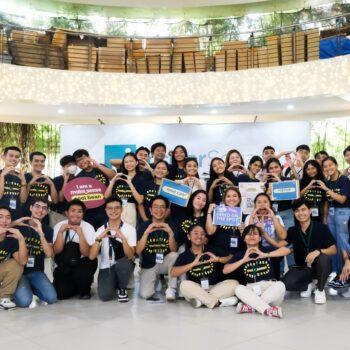 RISE For Youth Wins Award for Tackling Unemployment Among Filipino Youth
RISE For Youth Wins Award for Tackling Unemployment Among Filipino Youth -
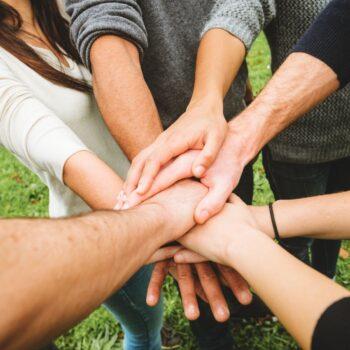 How Three Young Volunteers Help Their Generation Paint a Brighter Future
How Three Young Volunteers Help Their Generation Paint a Brighter Future -
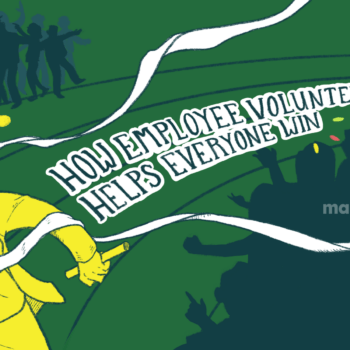 How Employee Volunteering Helps Everyone Win
How Employee Volunteering Helps Everyone Win -
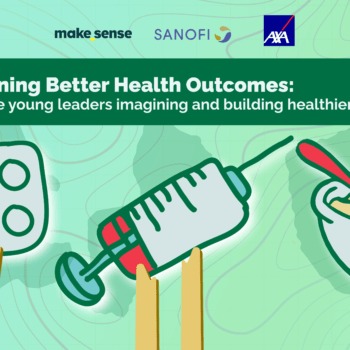 Imagining Better Health Outcomes: Meet the young leaders imagining and building healthier futures
Imagining Better Health Outcomes: Meet the young leaders imagining and building healthier futures -
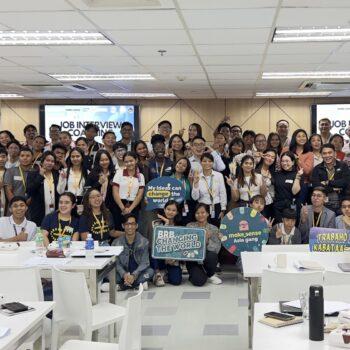 Designing CSR Programs That Actually Make a Difference
Designing CSR Programs That Actually Make a Difference
